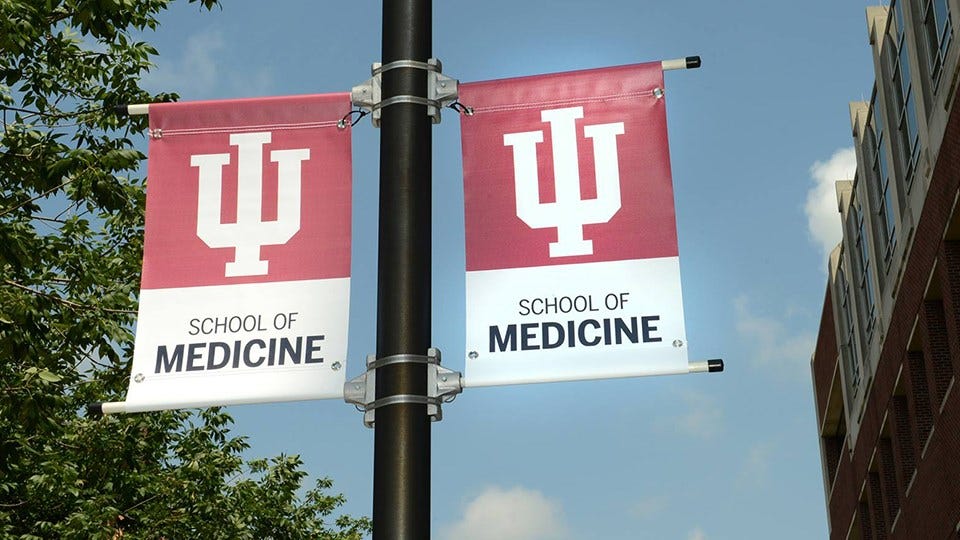IU School of Medicine lands major grant for Alzheimer’s research
Subscriber Benefit
As a subscriber you can listen to articles at work, in the car, or while you work out. Subscribe Now
The Indiana University School of Medicine said Thursday it will collect a $48.8 million grant over the next five years from the National Institutes of Health to continue research on treatments for Alzheimer’s disease.
The money will be used to study animal models of late-onset Alzheimer’s disease as well as perform rigorous testing of potential therapeutics in animals, the medical school said.
The goal is to re-create genetic mutations in mice that are similar to those found in people with late-onset Alzheimer’s, with the hope that the work will lead to important new discoveries about Alzheimer’s and potential treatment options.
The award comes on the heels of $30 million from the federal government since 2016 to conduct similar research, in the hope that testing will lead to breakthroughs for a disease that affects more than 55 million people worldwide.
Alzheimer’s disease robs people of their memories and impairs cognitive functions. The disease is progressive, meaning it often get worse over time, and has no cure, despite decades of research and billions of dollars to investigate potential treatments. Current drugs only temporarily ease symptoms and do not slow mental decline.
The $48.8 million award is the latest in a broad array of large grants won by IU to study Alzheimer’s disease, one of the least-understood diseases, which continues to attract researchers worldwide to look for better treatments.
“Over the past several years, the Alzheimer’s disease research portfolio at IU School of Medicine has greatly expanded in scope, from understanding the basic disease mechanisms to moving novel therapeutics into patients, and everything in between,” said Bruce Lamb, executive director of the school’s Stark Neurosciences Research Institute.
On Tuesday, Japanese drugmaker Eisai and its American partner, Biogen, announced that their work on an experimental Alzheimer’s drug slowed cognitive and functional decline by 27 percent in a clinical trial, a development that increased the therapy’s chance for approval as soon as early next year.
Meanwhile, Indianapolis-based Eli Lilly and Co. is testing an Alzheimer’s drug called donanemab in clinical trials, after the disappointing results from three other high-profile experimental Alzheimer’s disease drugs in recent years.
Under the latest grant from the National Institute on Aging, IU and three partner organizations are generating and validating animal models. The other partners in the program are Jackson Laboratory in Bar Harbor, Maine; the University of Pittsburgh School of Medicine; and Sage Bionetworks, a not-for-profit organization in Seattle that promotes open science in the research process.
Since the consortium was first established in 2016, researchers have created more than 40 animal models carrying genetic risk variants that closely mimic human Alzheimer’s disease. The models have been characterized using molecular and imaging processes used in the clinic.
All animal models, protocols and validation data in the study are shared online to the outside research community through the AD Knowledge Portal, run by Sage Networks.
For the past three years, the program, known as Model Organism Development and Evaluation for Late-Onset Alzheimer’s Disease, has been among the top five NIH-funded research studies at the IU School of Medicine. Four of those programs were for Alzheimer’s disease research, the medical school said.
